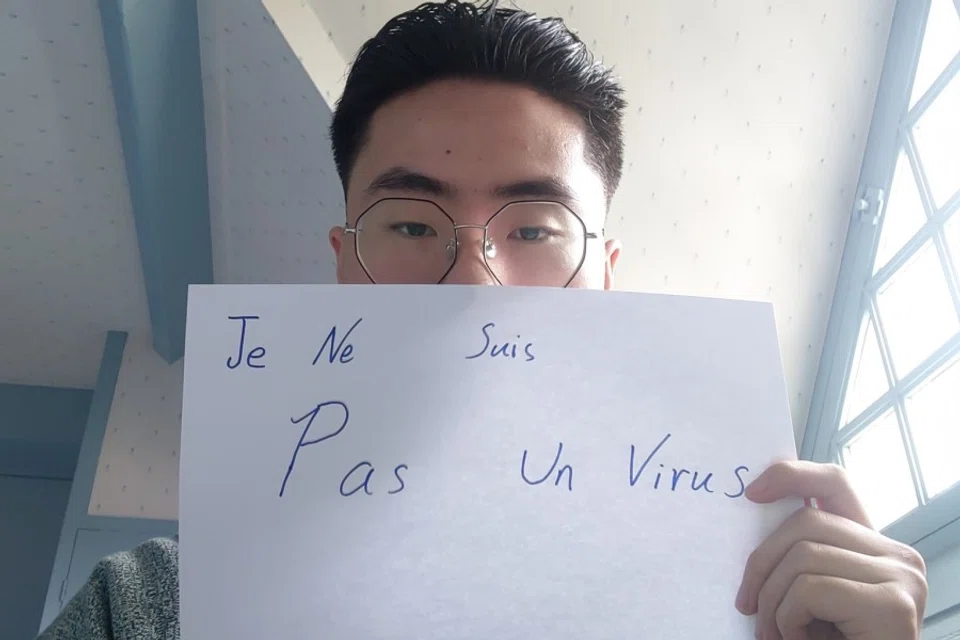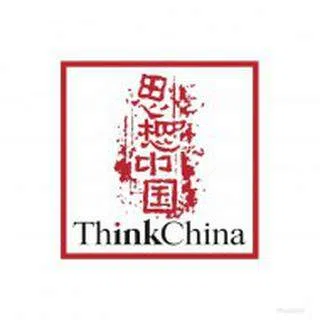[Photo story] When Chinese are not welcome
One month since the Wuhan coronavirus epidemic surfaced, accounts of racism have been reported around the world. Mainland Chinese, Hong Kongers, Taiwanese, people of Chinese or Asian descent, have been subjected to unfriendly and sometimes hostile and degrading words and behaviour. But some people are hoping to prove that solidarity in hard times does exist.

On 2 February, 29-year-old Massimiliano Martigli Jiang stood blindfolded and wearing a face mask, in the historical centre of Florence, Italy. A sign beside him, handwritten in Italian, Chinese, and English, said: "I'm not a virus, I'm a human being: Eradicate the prejudice".
This was part of an initiative by the Associazione Unione Giovani Italo Cinesi (Union of Young Italian-Chinese) to prove that despite the coronavirus outbreak, people could still stand in solidarity with the Chinese community. The group is responding to incidents of racism reported against Chinese in Italy, and throughout the world. According to China Global Television Network, Jiang was born in Wenzhou, China, but grew up in Italy and considers himself as much Italian as Chinese.
Turning away mainland Chinese in Asia
One of the earliest examples of discrimination was when the owner of a traditional confectionery in Hakone put up a notice telling mainland Chinese to stay away. The Asahi Shimbun reported that the owner created the sign using a translation app and put it up around 17 January. According to Asahi, some online posts in Chinese have voiced protests, and the owner has said he will "rewrite the sign and refrain from using expressions that may cause controversy". However, he added that he will continue to ban Chinese people from his shop, because he "wants to protect (himself) and does not want them to spread the virus".
A spokeswoman for the Hakone Tourist Information Centre was aware of the sign and apologised, but added that the tourist centre had no authority to intervene.


Japan is far from the only country where such incidents have occurred. In South Korea, residents have protested against government-built quarantine facilities, while local media has carried reports of businesses such as restaurants and clinics, as well as services such as cabs, saying no to Chinese patrons. Half a million South Koreans have petitioned the president to stop Chinese people from entering, no doubt made worse by questionable information, such as a YouTube video claiming that the coronavirus was leaked by a biochemical weapons facility in China.
In Hong Kong, Kwong Wing Catering, a vocal supporter of the Hong Kong democracy movement, announced in a Facebook post on 28 January that it will serve only patrons speaking English or Cantonese - but added that Taiwanese are still welcome.
Vietnam, too, has its share of anti-Chinese sentiment, with similar signs going up in establishments in areas such as the coastal resort of Hoi An. The New York Times reported that Bread Box, a banh mi restaurant in Hoi An, put up a sign saying: "We can't service for Chinese, SORRY!", while the Danang Riverside Hotel announced on Saturday that it would not be accepting any Chinese guests.




Turning away Asians in the West
In the West, too, longstanding prejudices against Asians are coming to the fore. People of Asian descent have described incidents of being singled out in public, with responses ranging from unfriendly looks, to people keeping a distance or covering their faces, to being told to stay home.
CNN reported that a British-Chinese journalist wrote in the UK's Guardian newspaper that a man moved seats when he sat down on a bus in London, while a Malaysian-Chinese social worker in an East London school was asked "why Chinese people eat weird food when they know it causes viruses".
João Rangel de Almeida of London-based medical charity the Wellcome Trust commented to the Financial Times that social tensions are magnified by disease outbreaks, while fear and panic leads to a need for scapegoats.
Apparently getting in line with stereotypes about Chinese people, French regional newspaper the Courrier Picard ran a cover story titled "Alerte jaune (Yellow alert)", and another story headlined "Le peril jaune? (The yellow peril?)". Following general outrage, the newspaper later apologised for both articles.

In Italy, Chinese businesses are suffering as Chinese nationals find themselves the targets of discrimination and racism.
The Italian government has declared a six-month state of emergency, which has only served to fuel alarm and rumours. The tension has not been eased with incidents such as 6,000 passengers being stuck for hours on the cruise ship Costa Smeralda in Civitavecchia, Rome, due to two suspected coronavirus cases. The tests turned out negative.
In the community, Santa Cecilia conservatory in Rome has told all its East Asian students - not only from China, but Japan and South Korea - not to attend class. Italian newspaper La Reppublica reported that conservatory director Robert Guiliano sent an email to all staff that "the lessons of the oriental students... are suspended... The conservatory doctor will visit them... Only those who pass the visit can be readmitted to attendance." Students' requests to meet senior staff have been ignored.
Four governors in northern Italy also called for children returning from China not to go to school for 14 days, prompting a reprimand from Prime Minister Giuseppe Conte.

People of Asian descent in Australia are also facing the effects of Sinophobia. A fake media release claiming to be from the Queensland Department of Health carried advice to avoid "all populated areas with Chinese nationals of ratio of one to three non-Chinese Australians", while a fake post on Instagram warned that shops in Sydney carrying products such as fortune cookies, rice, and "Chinese Red Bull" were contaminated. Rhea Liang, a surgeon on Australia's Gold Coast, tweeted about her shock when one of her patients refused to shake her hand, only to find from the responses she got that her experience is not unique.
Abbey Shi, a Shanghai-born student in Sydney, told Singapore's CNA that the attitude of some of her peers is "almost an attack on students who are Chinese", while Chinese Australian Andy Miao commented to the New York Times that passengers on public transport gave him odd looks if he did not wear a mask. "It makes people like me who are very, very Australian feel like outsiders."

Responses
While people of non-Chinese Asian descent are generally making it clear that they are not Chinese - shops in Budapest have put up signs saying "Vietnamiak vagyunk (We are Vietnamese)" - some human rights and civil organisations have weighed in.
BBC noted that Amnesty International has criticised the "shameful wave of Sinophobia" in Italy, describing Italy as "a country ready to hate", while the Federation of Ethnic Communities' Councils of Australia has urged Australians to "call out racism whenever, and wherever they see it".
A CNA report said Chinese journalist Hu Lanbo, who has lived in Italy for 30 years, published an open letter: "Believing that one can catch the new coronavirus at the mere sight of a Chinese person really makes no sense."
French citizens of Asian descent have posted photos of themselves holding signs with the message "Je ne suis pas un virus (I am not a virus)", hashtagging the same phrase.

This photo story was put together by Candice Chan, ThinkChina.





![[Photos] Fact versus fiction: The portrayal of WWII anti-Japanese martyrs in Taiwan](https://cassette.sphdigital.com.sg/image/thinkchina/3494f8bd481870f7c65b881fd21a3fd733f573f23232376e39c532a2c7593cbc)